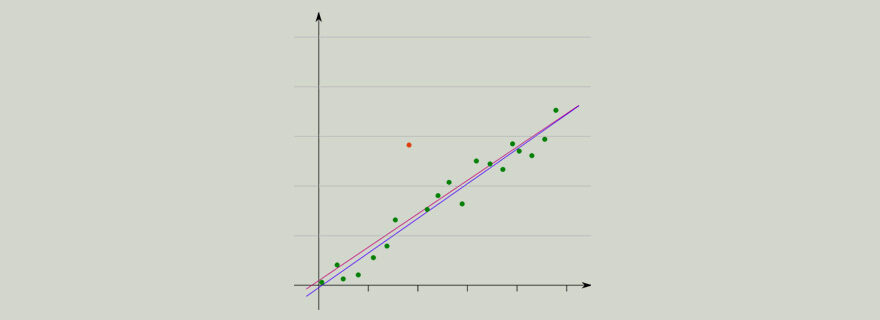Outliers
In statistics, we often use the term ‘outlier’. Outliers are data points that differ significantly from all other data points. An outlier is abnormal, atypical, anomalous. Above all, an outlier is unrepresentative of the underlying population.
Knowing something about an outlier tells us nothing about the rest of our data. Yet, their strangeness also makes outliers very interesting. This is exactly how outliers trick us into thinking they are important. In today’s social media society, we are nurtured to think that anything interesting is important. Ergo, outliers are important. But as we just saw, outliers are completely unrepresentative. It is tempting to consider outliers as important, but they are as unimportant as a single data point can be. In fact, statisticians often resort to removing or ignoring outliers.
This summer I spoke to 28 PhD and postdoc representatives at our university to prepare for my university council work. All of them unique in their own way. But I wouldn’t label any of them as an outlier. We are all faced with similar issues: work pressure, lack of (financial) support for representatives, poor communication. And we all come up with similar, albeit very creative, solutions: buddy systems, social activities, supervisor coaching sessions, fighting for the rights of external PhDs. Underlying it all is a shared passion for gathering and sharing knowledge. So no, there were no outliers in my dataset this summer. Good news, because it means we won’t have to remove or ignore any of our representatives.
That is not to say that Leiden University has not had any outliers in the past years. Several of our recent graduates have made a name for themselves by spewing unfounded, often racist, claims on the national stage. Claims that I cannot imagine any of our PhD and postdoc representatives supporting. Our representatives are eager to learn, have a positive worldview, and want to ensure that nobody feels excluded. Our infamous former colleagues represent none of those views; they are outliers. And you know what that means!
All jokes aside, our university would do well to communicate to the outside world what our students and employees are really like. We say that diversity and inclusion are “core values of Leiden University”, but many people now see Leiden as the least inclusive university in The Netherlands. Although many of our colleagues, including our rector, have expressed their disapproval of the past graduates in question, this is not nearly enough to compensate for the damage caused to Leiden’s image. If we don’t want to fall even further behind, we need to act now. The time for slick videos of deans talking about how inclusive we are is long gone.
When considering our population of young researchers, there is low-hanging fruit pretty much everywhere you look. We can incorporate existing diversity and inclusion trainings into our graduate programmes. We can give motivated PhDs and postdocs the chance to become diversity and inclusion ambassadors, so that they can enact real change. We can do so much more than what we are currently doing. Future students and employees should understand that Leiden truly strives to be a diverse and inclusive community. Let’s help everyone to distinguish between the true representatives of Leiden and the plain old outliers.


